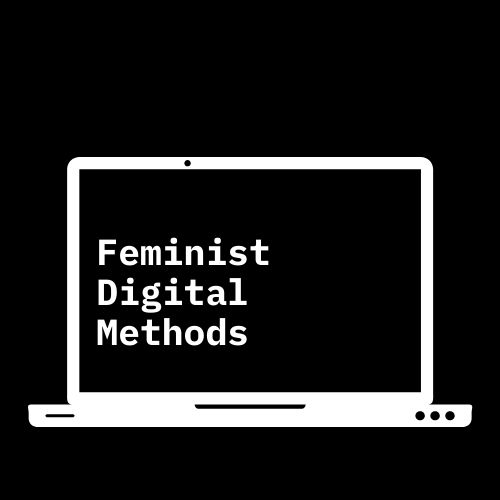The Feminist Digital Methods Research Cluster (FDMRC) fosters communities of practice around feminist digital methods among practitioners, learners, and researchers across disciplinary and interdisciplinary fields, levels of expertise, and internationally. The FDMRC has a history of collaborative co-sponsored events and welcomes opportunities for partnership and cross-pollination. It is hosted by the Centre for Feminist Resarch at York University and is supported by York University Libraries’ Digital Scholarship Centre and Media Creation Lab. It holds open access values and welcomes practitioners, learners, and researchers with and without institutional and / or community-based affiliations. The FDMRC creates intentional space for dialogues, knowledge sharing, workshops, showcases, and presentations. We aim to centre early career scholars, though all feminist digital methods practitioners and learners are welcome.
Research Areas
(non exhaustive)
- Feminist ethics
- Digital tools and infrastructure
- Feminist digital pedagogies
- Knowledge production and mobilization
- Social media and online social networks
- Online work and labour
- Performance, activisms, and presence in digital space
- Design and content development
- Collaborative and transnational feminist digital projects
- Intersectional approaches to feminist digital methods
Initiatives & Projects
The FDM Quilting Circle supports collaborative initiatives and projects. There are currently two projects underway for the 2023 Congress of the Humanities and Social Sciences, hosted by York University from May 27 - June 2.
Threads:
- FDM collaborative digital space/content-making group
- FDM Twine workshops and jam sessions
Cluster Members
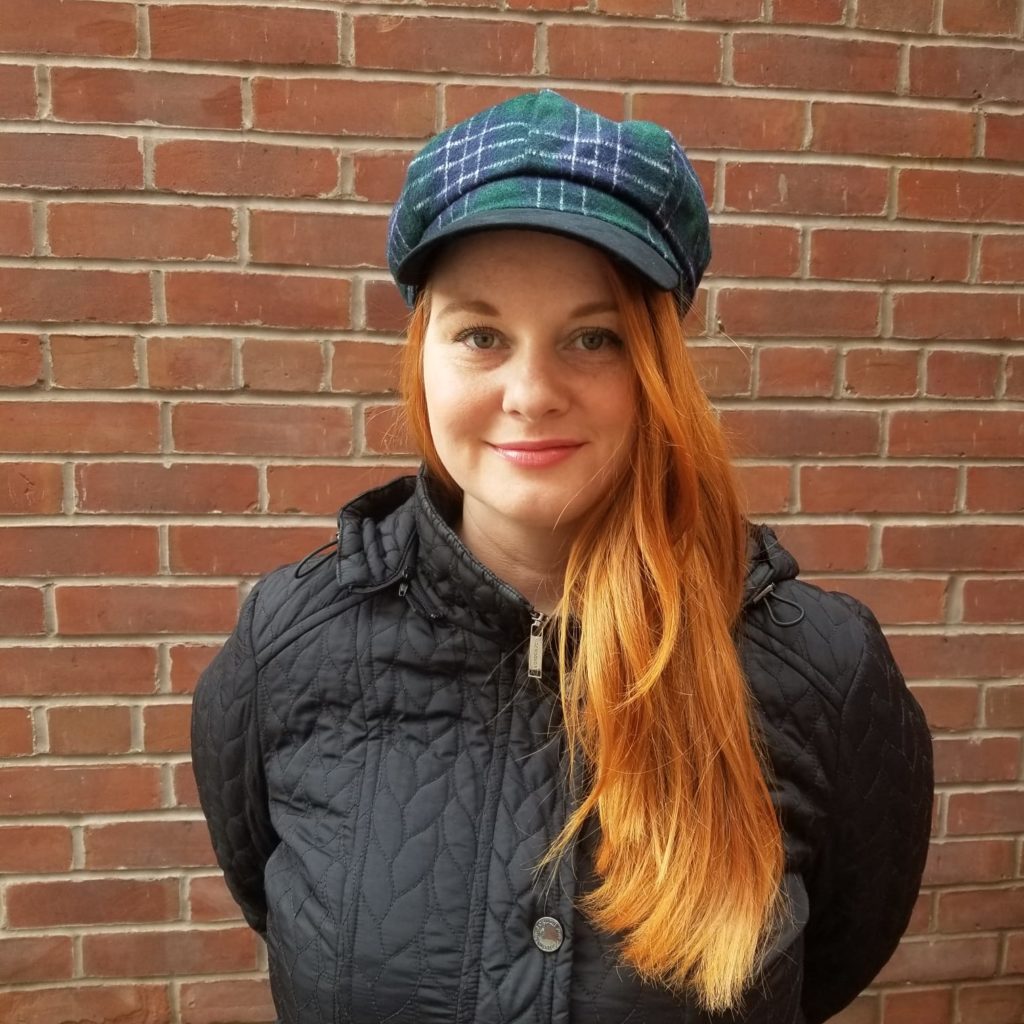
Sarah York-Bertram (she/they) is a PhD candidate at York University with fifteen years experience in feminist research and eleven years experience in queer and feminist digital methods. Sarah was a co-organizer for the Feminist Digital Methods Events and Conference in the spring and summer of 2022. In 2019, Sarah received a graduate assistant placement as a project lead for a transnational collaborative open access project using the Alliance for Networking Visual Culture’s Scalar platform hosted by York University Libraries Digital Scholarship Centre. Following the work placement, Sarah began to seek and facilitate open access communities of practice around feminist digital methods through virtual team work, events, a conference, and content-creation projects.
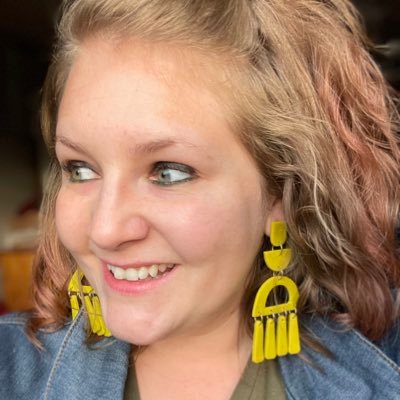
Jessica M. DeWitt is an environmental historian of Canada and the United States, editor, and digital communications strategist. She earned her PhD in History from the University of Saskatchewan in 2019. She is an executive member, editor-in-chief, and social media editor for the Network in Canadian History and Environment (NiCHE). A passionate social justice advocate, she focuses on developing digital techniques and communications that bridge the divide between academia and the general public in order to democratize knowledge access.
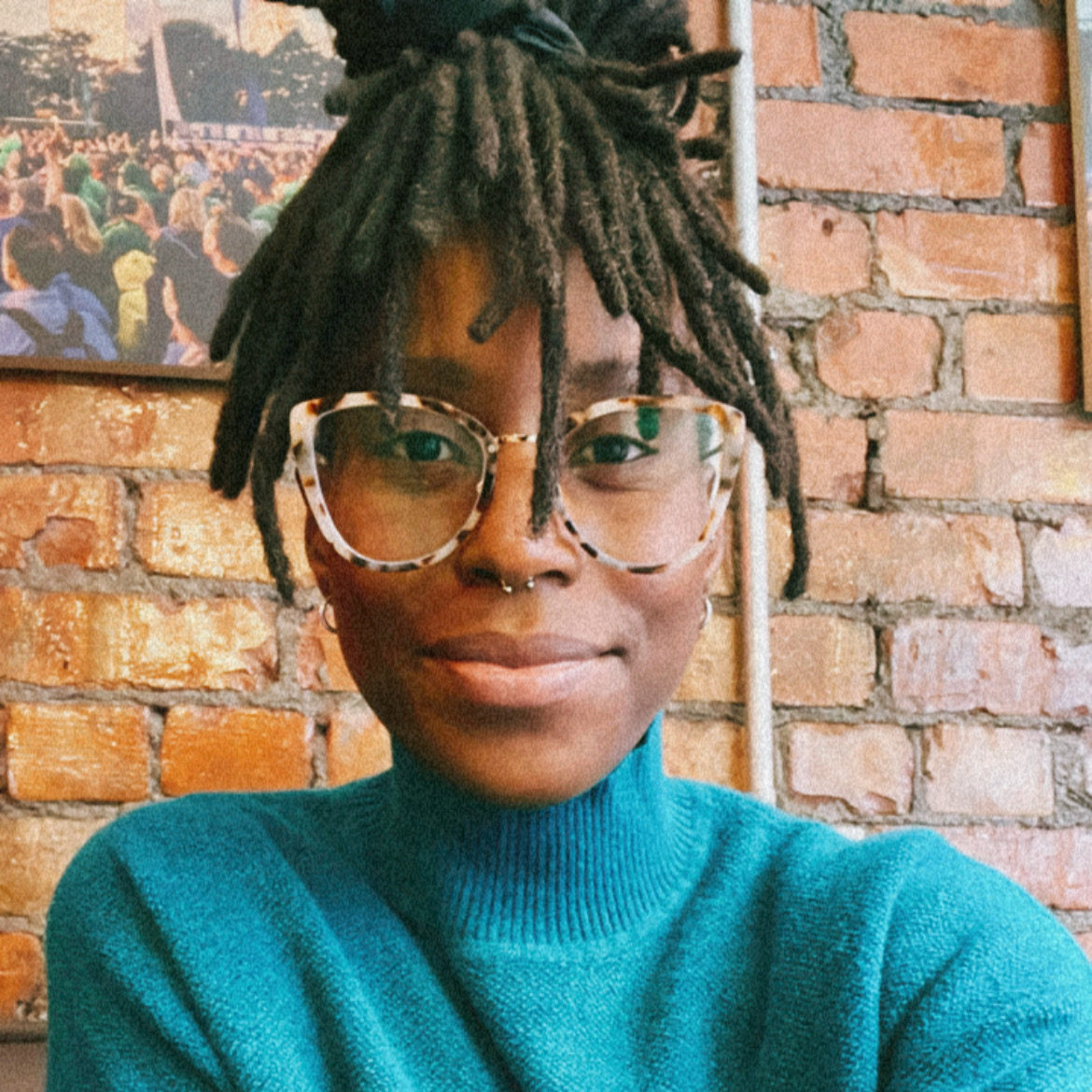
temi lasade-anderson (she/her) is a PhD student in Culture, Media and Creative Industries at King’s College London, completing exploratory research on Black women’s digital intimacy on Twitter. Her research interests are "the digital" and blackness; race, identity and digital (sub)culture; internet relationality, and platform governance. She was the recipient of Cardiff University’s department of Journalism, Media, and Culture Best MA Dissertation (2022) prize, for her research on Black British women’s confessional vlogs. Her work has been published in Feminist Media Studies. Alongside her PhD, she works as a freelance consultant at alaàṣẹ, a Black feminist internet lab she founded, which creates media and research for Black women's digital lives.
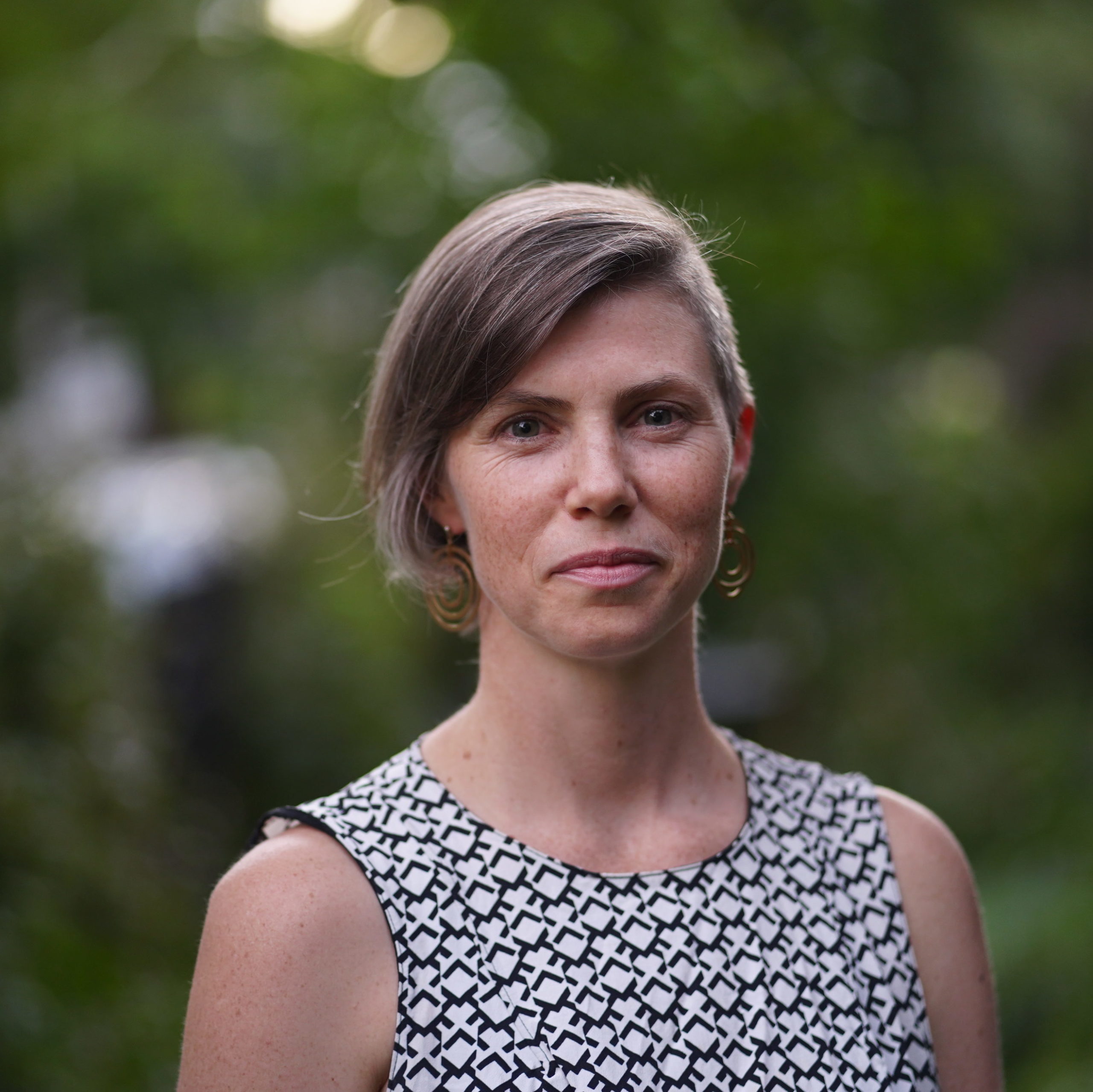
Anna Lee-Popham is a poet, writer, and editor in Tkaronto (Toronto, Canada). She holds an MFA Creative Writing from the University of Guelph, and is a graduate of The Writer’s Studio at Simon Fraser University and University of Toronto’s School of Continuing Education Creative Writing Certificate, where she received the Janice Colbert Poetry Award. Her writing has been longlisted for the CBC nonfiction prize, first runner-up in PRISM international’s Pacific Poetry Prize, and shortlisted for The Fiddlehead Creative Nonfiction Contest and ROOM Magazine's Poetry Contest, and has been published in Arc, Riddle Fence, Canthius, Autostraddle, and elsewhere. Anna co-hosts the Emerging Writers Reading Series and teaches at Sheridan College and University of Guelph's OpenEd Program.

Ilayda Ustel (she/they) is a PhD candidate and a Graduate Teaching Associate in the Comparative Studies department at the Ohio State University. She received her Master of Arts degree in Comparative Cultural Analysis from the University of Amsterdam. Currently, Ilayda's research focuses on questions of political subjecthood and social control, embodiment and vulnerability, politics of space and place, and both online and offline activism. Ilayda is especially interested in exploring alternative forms of collective acts of resistance, interruption, and occupation, how alternatives to 'public' space are formed and function, and how embodiment and vulnerability are translated into these alternative spaces.
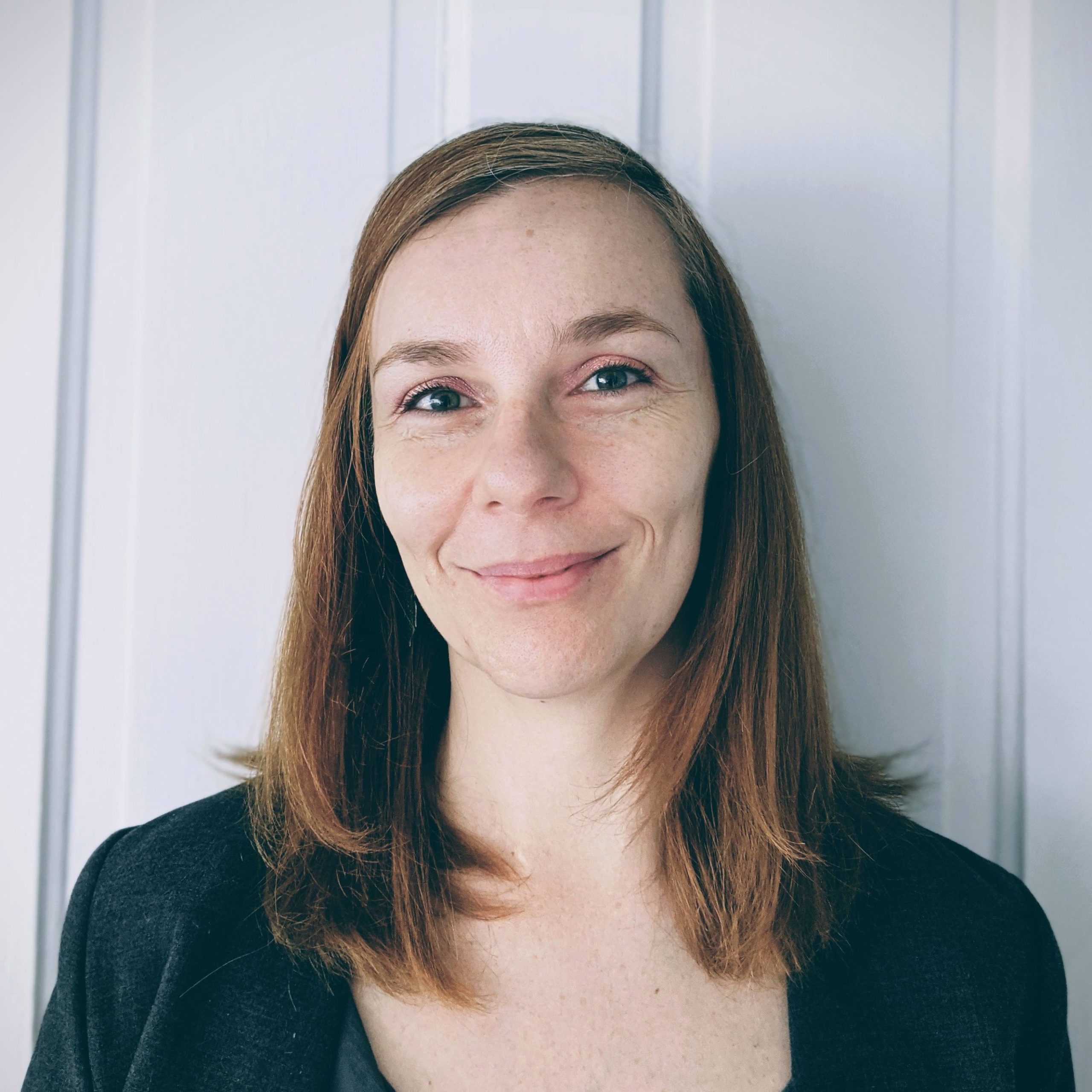
Alison Harvey is Associate Professor and Coordinator of the Communications program at Glendon College, York University. Her research and teaching focuses on issues of inclusivity and accessibility in digital culture, with an emphasis on gender and labour in digital games. She is the author of Gender, Age, and Digital Games in the Domestic Context (2015, Routledge) and Feminist Media Studies (2019, Polity). Her work has also appeared in a range of interdisciplinary journals, including New Media & Society, Games & Culture, International Journal of Cultural Studies, Feminist Media Studies, Information, Communication & Society, Social Media & Society, and Studies in Social Justice.

Aparajita Bhandari is a PhD candidate in the Department of Communication at Cornell University. Her work sits at the nexus of critical internet studies, critical data studies and digital culture engaging in critical examinations of social media platforms with a focus on understanding instantiations of everyday or mundane online experiences as potential sites of resistance against hegemonic power. Her interdisciplinary research has been published in journals such as New Media & Society, Journal of Computer-Mediated Communication, and Big Data and Society amongst others. Her doctoral research is funded by a SSHRC Doctoral Fellowship Award. She also is passionate about research ethics and developing community-engaged research that breaks down the exclusionary disciplinary boundaries and has an impact beyond the confines of the academy.
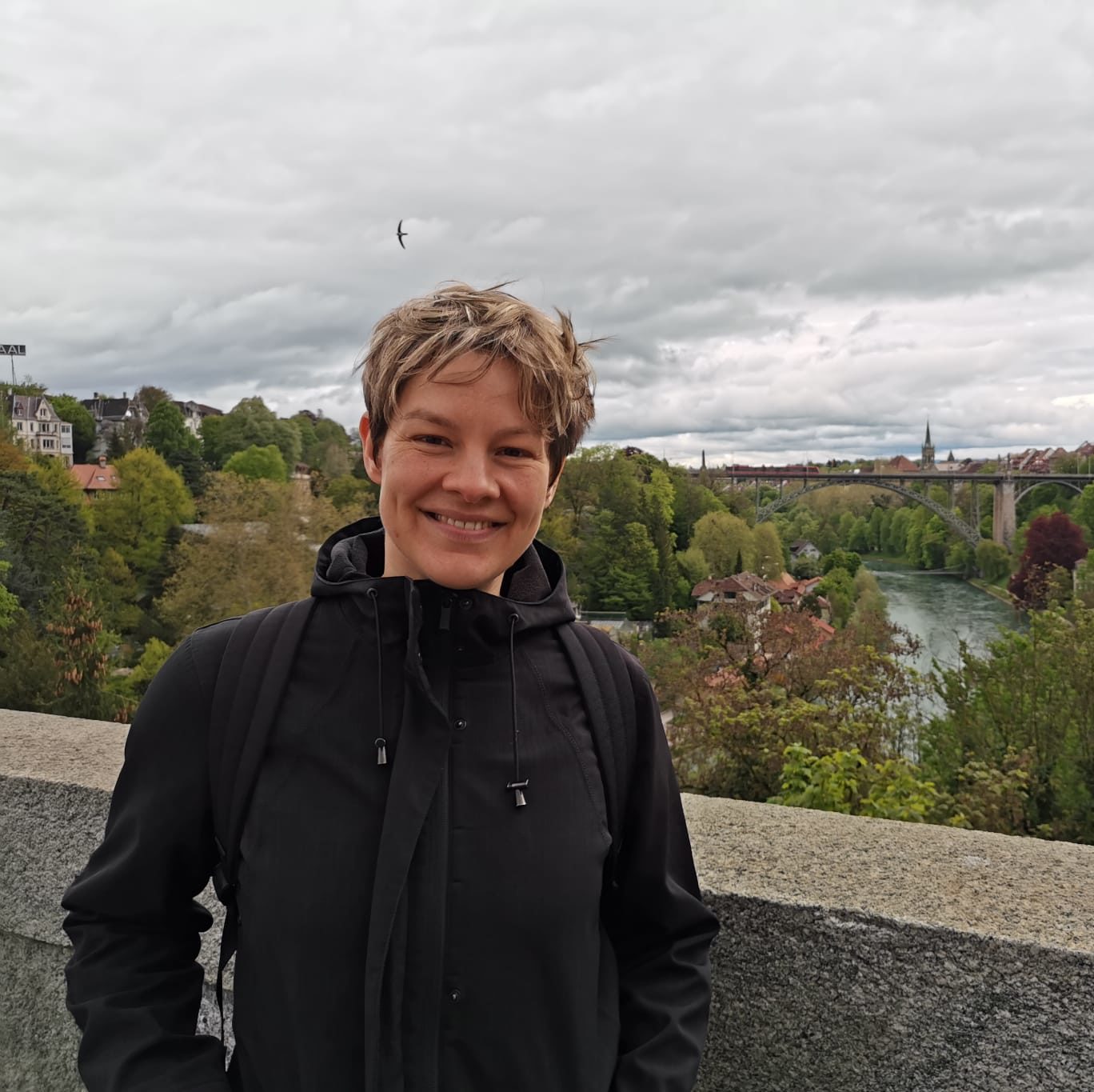
I am a feminist cultural and political geographer with a focus on global/intimate relations and digital transformations based at the University of Guelph (Canada) and the University of Innsbruck (Austria). My research brings together geographic theories of the body, emotion and affect, digital and affectual research methodologies and empirical fieldwork in Eurasia and on social media. From an intersectional research perspective, I want to understand how spaces of intimacy, everyday experiences of identity politics and digital technologies are interwoven. My current research explores the digital/intimate. I am particularly interested in developing feminist social media research methodologies.

Chelsea Russell is a third year PhD student at York University/ Toronto Metropolitan University where she is in the Communications and Culture Program. Her dissertation research analyzes female robots in video games by focusing on feminist and affectual practices and questions of the posthuman. Currently, she is a SSHRC-funded lead research assistant on young people, digital capitalism, and the videogame platform Roblox under Dr. Natalie Coulter. She has a chapter on the Anthropocene in the edited collection Showing Theory to Know Theory (Szanto, 2022), and an upcoming paper on female robots in the Neutral Cinema Studies Journal (2022). Furthermore, she is on the board of editors for the UK-based videogame journal Press Start.
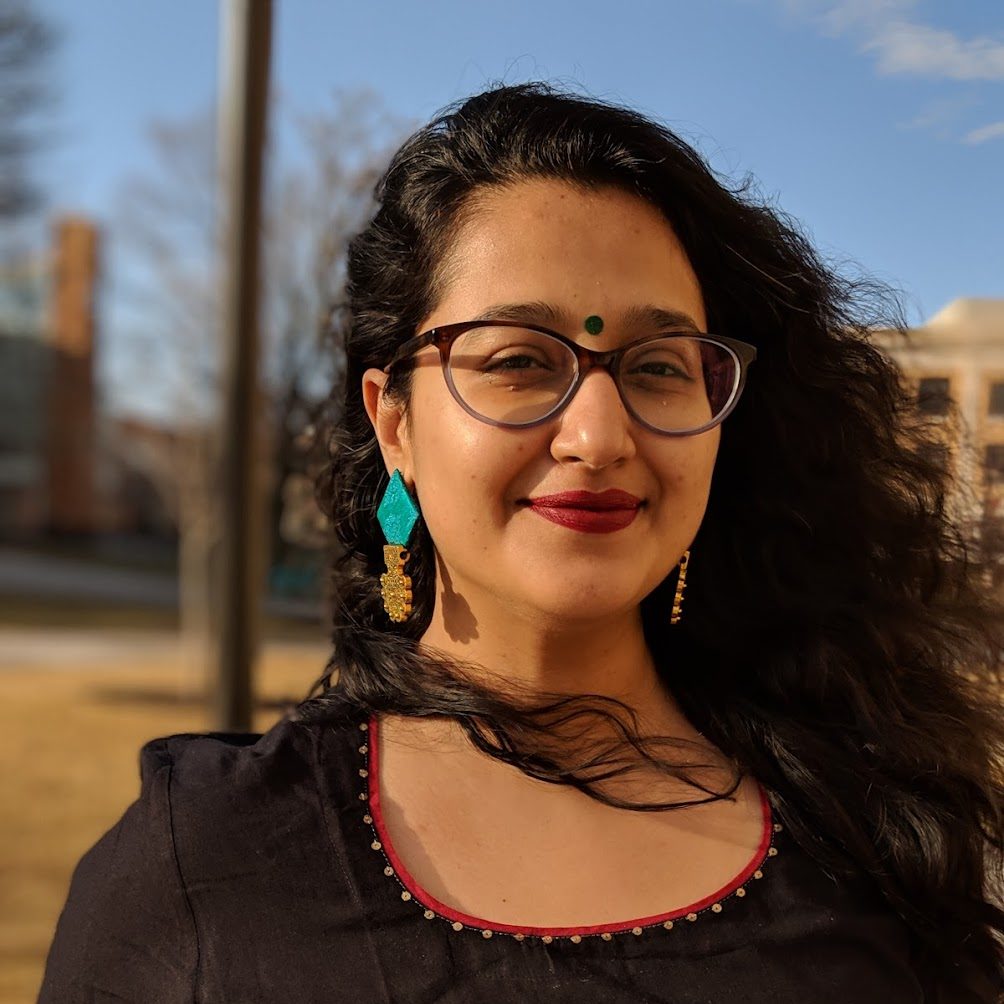
Riddhima Sharma is a doctoral candidate at Bowling Green State University, and a Project Scientist at the School of Public Policy, Indian Institute of Technology Delhi. She is also the founder of a digital feminist platform, FemPositive. She previously taught courses around gender, law, and public policy at the Research Centre for Women’s Studies, SNDT Women’s University, Mumbai as visiting faculty and led numerous workshops around gender, digital media, gender-based violence and law in India. Presently, her research lies at the intersections of digital media, feminisms, and critical feminist pedagogy in India.
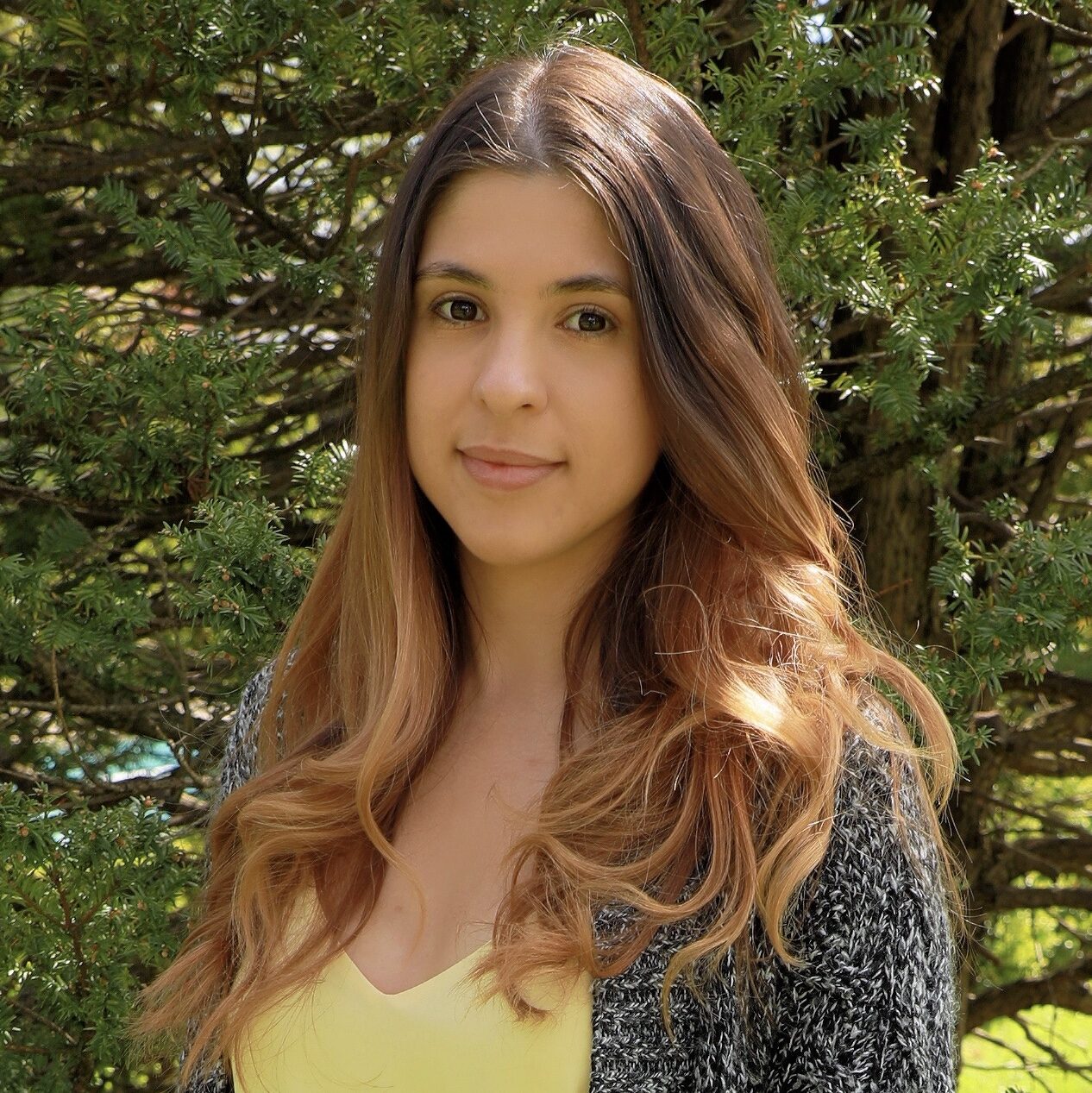
Liz Poliakova is a PhD candidate in Communications and Culture at York University. She holds an MA from the same program and a BA (Hons.) with a major in Book and Media Studies from the University of Toronto. Her research interests include digital self-publishing, the history of the Canadian book trade, and values in design.
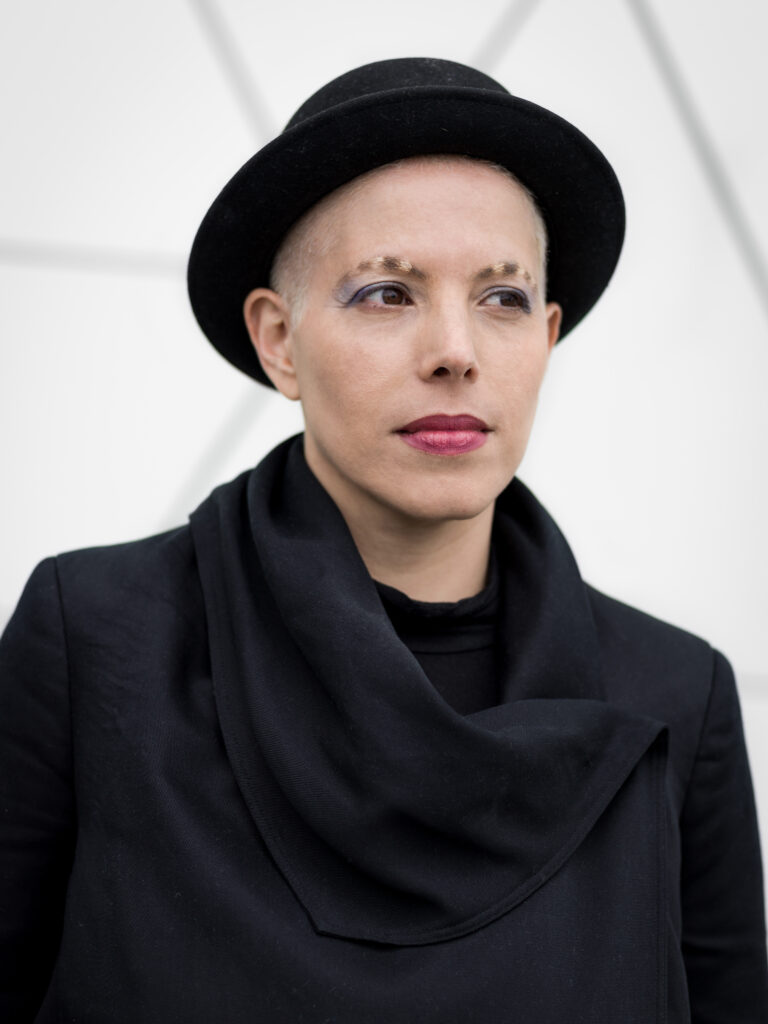
Galit Ariel is a technofuturist, author, activist, and experimental media artist that explores the wild and imaginative side of emerging technologies and their impact on our culture, behaviours and futures. Galit is the author of ‘Augmenting Alice - The Future of Identity, Experience and Reality’ and an ongoing contributor to publications, think tanks, and organizations in the intersection of art, technology, and social impact. Through her creative practice, Galit leads art/tech projects that address resemblances, gaps and glitches across digital, physical, and mental spaces. Her award-winning work includes AR and VR art, animation, subversive interaction methods, and content curation. Galit is considered a thought leader within immersive technology and tech futures practices and was named one of ‘Nine Women that are building the Metaverse’ (Unity, 2022). Galit is conducting her research-creation PhD at York University (Toronto), her field of research focuses on novel paradigms and speculative technologies related to immersive presence. She is a HASTAC scholar and a graduate research fellow at York University’s Sensorium Centre for Digital Arts and Technology.
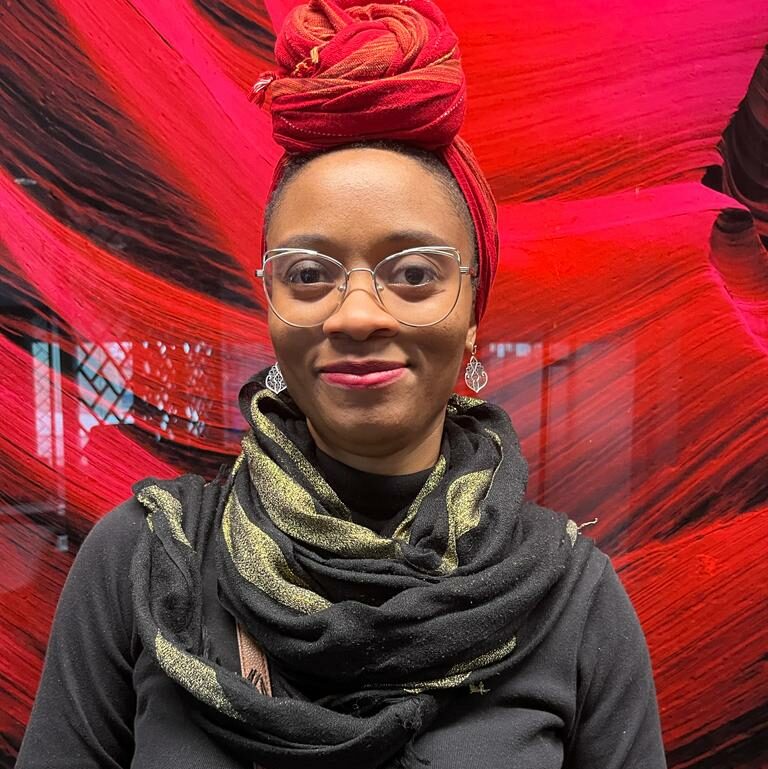
Ify Okadigbo is a Ph.D. Researcher in the School of Gender, Sexuality, and Women's Studies at York University Toronto Canada. She holds two Master’s degrees in Gender and International Development from the University of East Anglia (UK) and another in Gender Feminist and Women’s Studies at York University Canada. Her work uses a decolonial historical perspective to problematize the implication of the colonial encounter and its afterlives, on the outcomes, ambitions, and future of African women in Igbo and Hausa communities in Nigeria. More specifically, her research interests include coloniality, decolonization, African feminism, African personhood, traditional women’s movements, and female leadership. Most recently, her interest has expanded to include discourses of gendered power, regarding how African women, continue to interrupt the dichotomy that tends to dominate narratives surrounding Western religion and African spirituality.
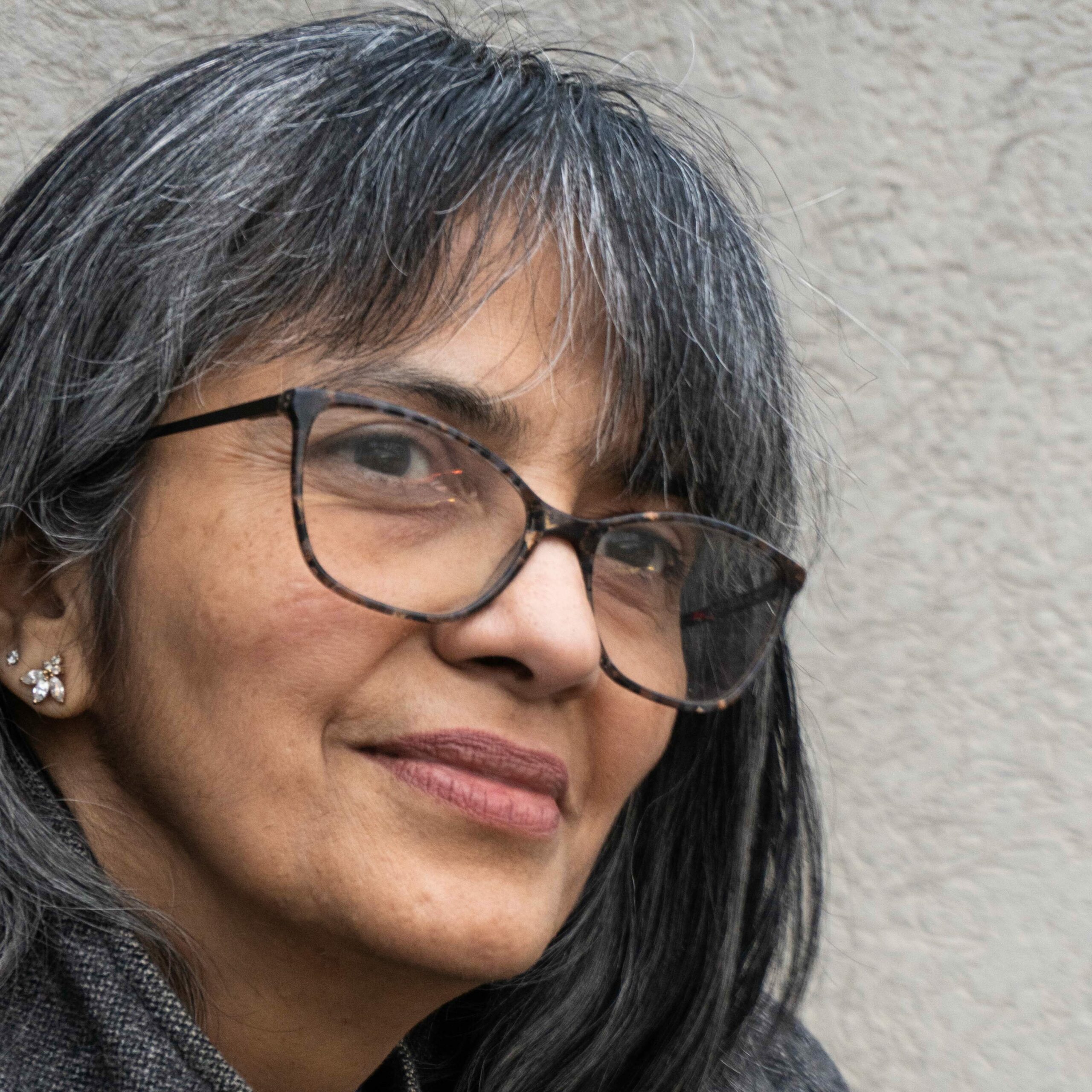
Shabnam Sukhdev is an award winning filmmaker and educator who emigrated to Canada in 2002. She has degrees in psychology, sociology, and special education. She also holds a post-graduate diploma in cinema from the Indian Film and Television Institute. She has worked in the film and television industry in Mumbai as a writer, director, and producer of short films and television series for over 15 years. Her short documentary 'Stranger in My Own Skin' was nominated for an Alberta Motion Pictures Industry Award in 2005. 'The Last Adieu' (2014) a documentary about the life and work of her filmmaker father won her the national award for best biographical reconstruction.Her socially conscious films address fundamental issues of identity, culture, feminism, sexuality, migration, and mental health. Her most recent film, Unfinished (2021), made as part of York University's MFA film program, won the CILECT award for Best North American Documentary. She is currently pursuing her doctorate in theatre and performance studies at York University in Toronto, where she is studying the transformative power of performance in family therapy.
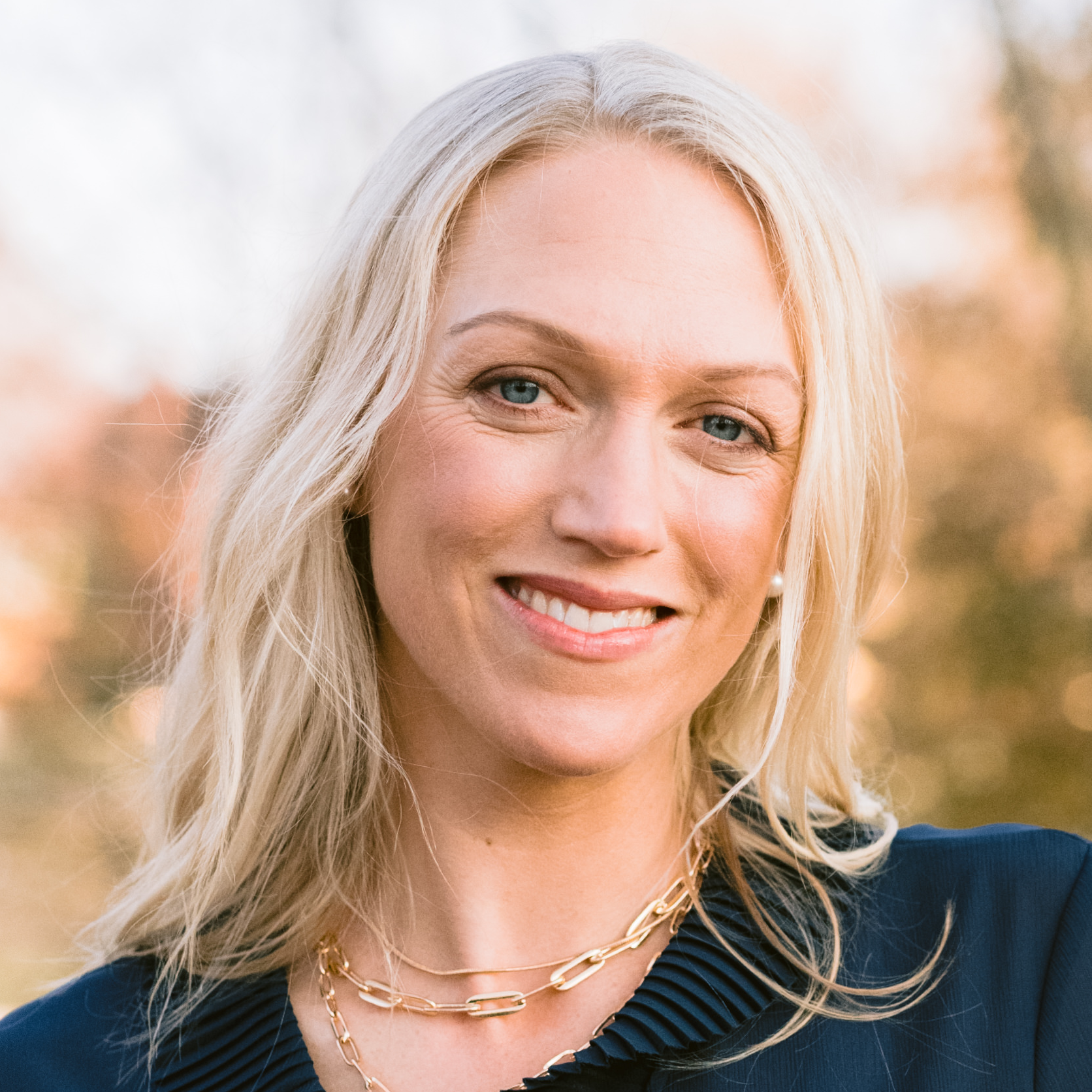
Lyndsay Hayhurst is a Tier 2 York Research Chair in ‘Sport, Gender and Development and Digital Participatory Research’, Director of the ‘DREAMING Sport Lab’ (Digital participatory Research in Equity, Access, Mobility, Innovation aNd Gender in Sport Lab). She is an Associate Professor in the School of Kinesiology and Health Science at York University in Toronto, Canada. Her research interests include sport for development and peace (SDP); gender-based violence and sexual and reproductive health in/through SDP; digital participatory action research; trauma-and violence-informed approaches to SDP; cultural studies of girlhood; postcolonial feminist theory; global governance, international relations and corporate social responsibility; SDP in Indigenous communities; and the gender, sport and environment nexus. She is a co-author (with Holly Thorpe and Megan Chawansky) of Sport, Gender and Development: Intersections, Innovations and Future Trajectories; and co-editor (with Tess Kay and Megan Chawansky) of Beyond Sport for Development and Peace: Transnational perspectives on theory, policy and practice. Her publications have appeared in Women’s Studies International Forum; Gender, Place & Culture; Third World Quarterly and Sociology of Sport Journal. She has previously worked for the United Nations Development Programme and Right to Play.

